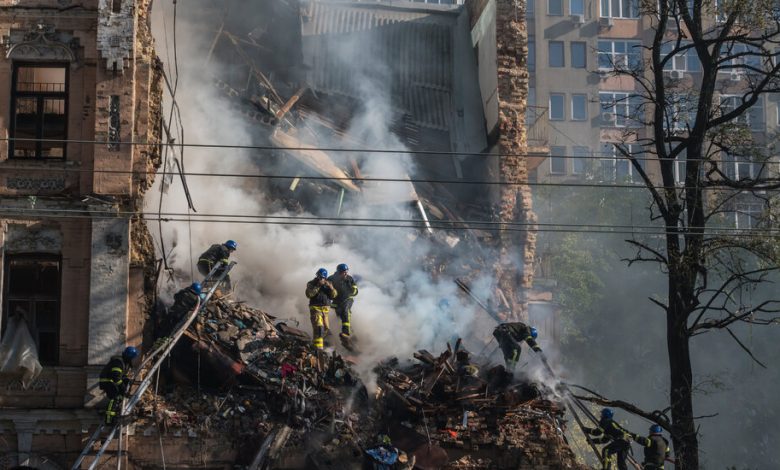The E.U. imposes fresh sanctions on Iranians over supplying drones to Russia.

The European Union condemned Iran’s military partnership with Russia on Monday as a gross violation of international law and announced new sanctions against eight Iranian individuals and entities over their role in supplying drones Moscow has used to attack Ukrainian civilians and infrastructure.
Iranian-made drones have been used “indiscriminately by Russia against Ukrainian civilian population and infrastructure causing horrendous destruction and human suffering,” the European Council, the E.U.’s top decision-making body, said in a statement that broadly condemned Iran’s human rights record.
Russia has deployed Iranian-made drones in Ukraine since August, according to U.S. officials, using them to attack infrastructure as well as military targets. On Saturday, Russian forces used Iranian drones to knock out power to more than 1.5 million people in the port city of Odesa, far from the front lines.
The four individuals facing new E.U. sanctions include the commander in chief of the Iranian Air Force, the head of a weapons research and development unit of the Islamic Revolutionary Guard and a Revolutionary Guard officer who organized a drone demonstration for Russian forces in August.
The entities added to the sanctions list include what the European Council described as a “front company” involved in the development of drones used by Russia, as well as a company that the council says produced drone engines.
The bloc previously imposed sanctions against Iranians over the drone deliveries. In October, the E.U. imposed restrictions on the chief of staff of Iran’s armed forces, the commander of the Revolutionary Guard’s air force and Shahed Aviation Industries, the company responsible for designing and developing the drones.
More than 1,350 individuals and entities have been subject to an asset freeze and travel ban by the E.U. since 2014 over actions that “undermined Ukraine’s territorial integrity, sovereignty and independence.”
Iran’s military support for Russia has come under heightened international scrutiny in recent weeks, though the Kremlin has denied using the Iranian-made drones to attack civilians, and Tehran maintains that all drone deliveries took place before Russia’s invasion of Ukraine in February.
The Biden administration declared on Friday that the two countries were forming a “full-fledged defense partnership” that was expected to intensify in the coming months, while British officials warned that Russia was now seeking hundreds of ballistic weapons from Iran in exchange for “an unprecedented level of military and technical support.”
The European Union strongly advised Iran on Monday that any new weapon deliveries to Russia, and in particular any movement toward delivering short-range ballistic weapons, would be considered “a serious escalation.”
